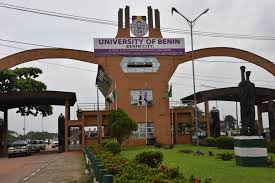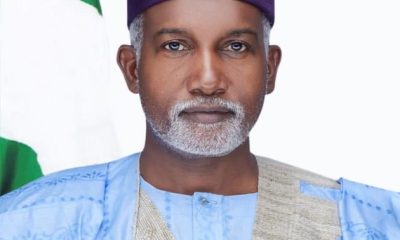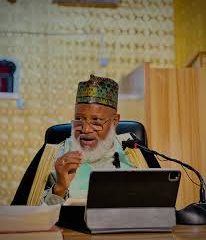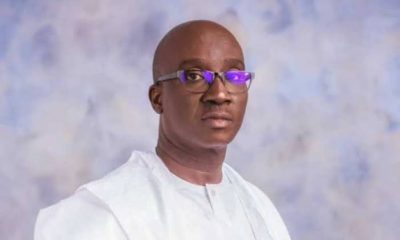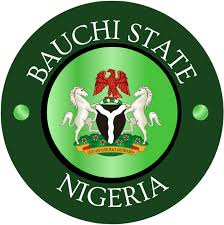OPINION
Why the Sun Has Not Risen on the Mambilla Project
By Iliyasu GaduIf
you have visited the Mambilla plateau in Sardauna Local Government of Taraba state, you probably will not behold a better Eldorado in Nigeria. Everything about the place from the temperate weather, to the bewitching scenic beauty, to the agricultural produce and livestock is something you can never find in any part of Nigeria.
The weather is so clement all year round that you do not need an air conditioner in your home. The bananas are huge and succulent you will mistake them for plantain. Coffee, tea and beverages abound here as well as grapes, and avocado. Mambilla is also a potential tourist haven. The highest elevation in Nigeria, Chappal Wadi peak is one of the several wonders of nature in Mambilla.Adding to the scenic, breath taking beauty, the place hosts a variety of flora and fauna that if properly harnessed would rank as a top tourist destination not only in Nigeria but Africa. If Taraba state where Mambilla is located is likened and called “Nature’s gift to the Nation’’, then Mambilla can rightly be termed ‘’Nature’s gift to Taraba’’.Mambilla used to be part of Cameroon but due to the plebiscite organized by the United Nations for the English speaking parts of the country, the northern areas of which Mambilla right up to Mubi in Adamawa voted to join with Nigeria.The southern English speaking part of course decided to stay in Cameroon and we are all witnesses to the consequences of that decision on the area. For convincing the northern part of Cameroon which constitute parts of Taraba and Adamawa states today, we need to thank Sir Ahmadu Bello, the late premier of Northern Nigeria who campaigned vigorously in these areas and for whom the Sardauna Local Government where Mambilla is located, after his traditional title of ‘’Sardauna’’.But for all these beautiful attributes of Mambilla, there is an ugliness that cannot be hidden. Among the many useful things about the place is that it can also be a source for a massive power project of up to 3,000 megawatts. Surveys carried out decades ago had indicated that across the river that runs through Mambilla, a dam of that capacity can be built to supply power and irrigate the land for greater agricultural productivity.The reports of the baseline studies on this project had been in abeyance until 2003 when the President Olusegun Obasanjo administration as part of its power development programme decided to award a six billion dollar contract for the construction of the dam.Sunrise Power, a company owned by a well-known Lagos based wheeler dealer Leno Adesanya was the beneficiary of this contract which was signed off by Olu Agunloye the then Minister of Power during the Obasanjo administration.Before he was appointed as Minister of Power, we knew the tall Physicist and Ondo-born Agunloye as one time boss of the Federal Road Safety Corp. I can be too sure that both Agunloye and Leno Adesanya had ever visited Mambilla and what they knew of the place if at all may just be enough to fill the back of a postage stamp. But here they were, given the power to award and supervise the construction of a multi-billion dollar power project in what can be termed the boondocks of Nigeria.One can be sure that with such fellows at the helm and against such setting, the project will never see the light of day (no pun intended); never mind that the contractor goes by the name ‘’Sunrise’’ (No pun intended here).As it has now come to light 22 years later since the contract was awarded in 2003, earth had been shifted to clear the site of the project not to talk of turbines installed to power the dam and provide energy. But what is sure is that vast amounts of money has been expended so far mainly on litigations and ‘’investigations’’ into the project. The latest news on the project is that two former Nigerian leaders Olusegun Obasanjo and Muhammadu Buhari appeared before a court of arbitration in Paris, France to explain what they knew about the project.And why was this necessary?I recognise that the matter is sub judice both locally and abroad but I will take the liberty allowed under fair comment and the overriding interest of the right of the public to know, to shed some light on the shenanigans that have dogged the project.The long and short of it is that Sunrise was paid some mobilization money but did not for whatever reasons execute the contract fully. And to protect its contractual propriety over the project in order to prevent it from being re awarded to another contractor, Sunrise put a caveat emptor on the projector. This meant that for any consideration on the projector in whatever form, Sunrise had the right of first refusal over any other party including even the Nigerian government.This much came to light when the Buhari administration sought to revive the project from a decade of abeyance. The attempt by the Buhari administration to engage a Chinese contractor to do the project was stonewalled by Sunrise which took the matter to an International Arbitration court in Paris. As the Presidents under whose tenure the Mambilla project featured, both Obasanjo and Buhari were thus obligated to appear before the court of arbitration which they did.Another twist to the project is the role which Buhari’s second minister of power, Saleh Mamman played in the whole sordid saga. His predecessor in the ministry Babatude Fashola (SAN) being the smart lawyer that he is gave the project a wide berth knowing the legal entanglements associated with it. But Saleh Mamman who incidentally is an indigene of Taraba state and even has filial connections to the Mambilla area is now under investigation by the Economic and Financial Crimes Commission (EFCC) on allegations of misappropriating 32 billion naira under his watch as minister.Among the issues that had come to light is his alleged role in the Mambilla project where he claimed to have spent huge sums in paying compensation to owners of the land and clearing of the site for the project. This also included an engagement session for stakeholders of the project which took place at Transcorp Hotel Abuja. All these were in anticipation of the takeover of the project by the Chinese. But as we all know now the Sunrise’s decision to seek international arbitration stymied the move.In what had also added a dark shadow over the issue, a BBC on the spot investigation showed that despite the huge sums that were claimed to have been expended, nothing on ground justified such.This prompts us to ask why some pertinent questions.Why was Sunrise a company with no proven track record of handling energy projects of this nature awarded the Mambilla power project in the first place. Was it meant to be a flag contract in which a company without capacity is awarded such a contract on the understanding that it will be a conduit through which funds will be funnelled to parties unconnected to the project?Why did the Obasanjo and subsequent governments allow Sunrise which did little to commence the project after reportedly collecting some mobilization funds, to put a lock hold on the project for 22 years now, thereby stalling its take off? Where are the vocal anti-corruption watchdogs who all too often are quick and vigorous when similar issues occur in certain parts of the country?As it is, now that the issue had been taken to international arbitration it is likely that Nigeria’s quest to boost its power sector through the 3,000 megawatt capacity Mambilla power project will be delayed for long if not totally scrapped. And this will be down to a Nigerian company ironically called ‘’Sunrise’’ which rather than be the harbinger of power and energy as its name implies, has instead decided to do the opposite.Gadu can be reached via Ilgad2009@gmail.com and 08035355706 (Texts only).OPINION
Repositioning Nigeria amidst Global Trade, Tariff Tensions
By Rukayat Moisemhe
Recent trade tensions between the United States (U.S.) and several countries have created unprecedented economic challenges, likewise some opportunities across the global economic terrain.As with most tensed situations, many victims, countries in this case, suffer varying degrees of effects, depending on their fortifications, preparedness and abilities to navigate economic turbulences.
The U. S. had on April 2 declared a 14 per cent tariff on all Nigerian exports and this development had broad implications on the country’s trade balance and its economic diversification agenda.Also, the fate of many of its Micro, Small and Medium Enterprises (MSMEs) alongside players in the manufacturing and agricultural sector appears to be in the balance due to the development.While Nigeria has towed the consultations route with U.S and World Trade Organisation (WTO) on how to turn the situation to benefit the country, some economic stakeholders have lent their voices on the way forward.Director-General, Chartered Institute of Directors Nigeria (CIoD), Dr Bamidele Alimi, noted that in response to the shifting trade policies globally, companies must seek to restructure their operations.Alimi noted that amidst the difficulties of the tariff impositions lied potential advantages, including new trade partnerships, alternative export markets, and investment possibilities.He stated that the current trade situation may create strategic opportunities for forward-thinking businesses, prompting a realignment of global trade partnerships, potentially benefitting Nigeria.According to him, this could help develop stronger trade relationships with countries affected by the tariff war, potentially opening new export markets.“As China and other tariff-affected countries seek alternative destinations for their products, our nation might become an attractive investment destination.“This could lead to technology transfer and manufacturing expansion, potentially strengthening local production capabilities and creating jobs.“Businesses that are prepared to form strategic partnerships with international companies seeking to circumvent tariffs might find unprecedented growth opportunities,” he said.Alimi advocated stronger intra-African trade networks to provide some insulation against external trade disputes whilst creating new markets for Nigerian products throughout the continent.He also urged businesses to consider forming industry associations or cooperative arrangements to increase their collective bargaining power when dealing with international suppliers and customers.President, Lagos Chamber of Commerce and Industry (LCCI), Mr Gabriel Idahosa, stated that to navigate the trade war challenges, Nigeria must begin to lead conversations around the Africa Growth and Opportunity Act (AGOA).He said the country must explore other multilateral platforms to sustain opportunities.Idahosa stressed that Intra-African trade under the African Continental Free Trade Area (AfCFTA) should be aggressively promoted.He also recommended an urgent review of Nigeria’s national trade policy to reflect emerging global realities.According to him, Nigeria’s trade, tax, and customs regimes must be modernised to align with WTO rules and safeguard Nigerian interests.“We urge the federal government to incentivise local production and value addition in agriculture, mining, and manufacturing.“Exporting commodities in their primary state must give way to processed finished Nigerian goods that command higher global value,” he said.Also, the Bashir Adeniyi Centre for International Trade and Investment (BACITI) of the Nigerian Institute of International Affairs (NIIA) noted that while Africa was not the target of the U.S. tariffs, it was caught in the crossfire.Dr Adesuwa Erediauwa, its Senior Research Fellow, said Africa faced both a challenge and a wake-up call to strengthen regional integration via AfCFTA, diversify exports, and compete globally without reliance on preferential access.She noted that the U.S. tariff would hit Nigeria’s small non-oil export sector hardest as the country’s agricultural and manufacturing MSMEs that had carved out a market in the U.S. now face a price disadvantage.Erediauwa said Nigeria must view the U.S. tariff episode as a catalyst for structural transformation.She added that the country’s long-term economic resilience depends on industrialisation and a strategic shift from raw commodity exports to value added finished goods.“To reduce vulnerability to external shocks, Nigeria must accelerate the diversification of both its economy and export base.“Reducing over-reliance on crude oil is essential for macroeconomic stability and sustainable development.“Priority growth sectors such as agro-processing, solid minerals, digital services, and manufacturing must be scaled through targeted investment, infrastructure development, and supportive policy frameworks,” she said.Though the new U.S. trade tariffs and trade war may seem like a setback, they present a vital opportunity for Nigeria and Africa to reassess, rethink, and strengthen their economic foundations.The Nigerian government must strengthen its support for exporters through loans, tax rebates, financial interventions while it partners relevant agencies to identify new markets.(NAN)OPINION
Tinubu-Buhari Partnership and Opposition’s Desperate Search for Validation

By Tunde Rahman
The special relationship between President Bola Tinubu and former President Muhammadu Buhari has witnessed many remarkable moments. It has experienced dramatic and exciting times, just as there have been challenging moments. Life changing and sweet memories abound between the two great leaders.
Between the two great men, there are recollections of might-have-beens. There are also open testimonies about the gains of the partnership and words of commendation as well as scornful moments.Nonetheless, the two leaders have trudged on to the admiration of their mutual friends and associates, and bewilderment – I dare say, disappointment – of others who would wish both had long parted ways.
About pleasant times, one important moment readily comes to mind. It was towards the end of 2017, two years into the Buhari presidency. The former president was traveling to Abidjan, Cote d’Ivoire, for the 5th African Union-European Union Summit, which took place from November 28th to 30th, and had invited Asiwaju Tinubu to join his entourage. Coming from Buhari, the invitation was a pleasant surprise to the then All Progressives Congress National Leader, given that the administration he worked very hard, with others, to bring into existence, had largely sidelined him after taking over power in 2015. The Cote d’Ivoire invitation, therefore, represented one of the few occasions he would be directly contacted.
As it turned out, taking Tinubu along on that trip proved helpful. Tinubu attended a couple of official meetings and engagements with the former president, including the meeting with the Nigerian Community in Cote d’Ivoire. Buhari alluded to this during that trip.
Speaking about Tinubu, while addressing the Nigerian Community in that country on the sidelines of the summit, the former president had said: “I must thank our Leader, Asiwaju Bola Ahmed Tinubu. He has brought me a very beautiful piece of information, which I was not aware of until I sat down and read it. Thank you very much for your hard work, and I will discuss that paper with you.”
Many were wondering at the time as to what piece of information Tinubu had offered Buhari. But at that time, 2019 was around the corner, and Buhari needed to rally his troops for re-election. There was a need, in my view, to tap Tinubu again for his strategic support and rich political network. Each time Tinubu had any opportunity to visit Buhari at the Presidential Villa, it was to offer ideas and suggestions about the way forward for the government and the country. I know this as a fact because I was always there with him.
Tinubu had helped Buhari to power in 2015 after the General’s three previous unsuccessful attempts. An alliance between Buhari’s Congress for Progressives Change (CPC) and Tinubu’s Action Congress of Nigeria (ACN) that had earlier hit the rocks in 2011 was resuscitated in the run-up to the 2015 election, engendering a working alliance between the North-west and South-west. This was the alliance that put the wind in Buhari’s sail and fired him to the presidency.
For the first time in a long while, the former president recently spoke on this valuable support and fine relationship with Tinubu in a telephone call to the President on his 73rd birthday. According to a statement by his spokesperson, Mallam Garba Shehu, Buhari underscored the bond between him and Tinubu. He disclosed that his family and himself remain indebted to President Tinubu and other APC leaders for the invaluable contributions they made towards the formation of the party, which catapulted him to the presidency for two terms, and helped to produce another APC administration with Tinubu himself at its head.
“No doubt, the annals of the country will not be complete without bringing into mention, and a recognition of the varied and numerous roles of President Tinubu as an entrepreneur, a party stalwart, a staunch activist, party organiser, party builder, a reliable ally and a serial winner of democratic elections. I am truly proud of my association with the Asiwaju,” the former president said.
President Tinubu, on his part, has at every turn extolled the virtues of former President Buhari. For instance, during Buhari’s 82nd birthday last December 17, Tinubu penned a moving tribute to the former president.
He wrote: “Dear President Muhammadu Buhari, on behalf of the government and people of Nigeria, I extend my warmest congratulations and best wishes to you on your 82nd Birthday.
“As you celebrate this remarkable milestone in Daura, we reflect on your years of dedicated service and leadership, which have significantly shaped the course of our nation. Your steadfast commitment to Nigeria’s advancement and unity inspires many, and your enduring legacy continues to guide our nation’s journey towards prosperity and stability.”
Praising Buhari for his doggedness and resilience in contesting presidential elections in 2003, 2007 and 2011 before winning in 2015 and 2019, inspiring “us never to give up,” President Tinubu assured him: “I will continue to build on the infrastructure legacy you bequeathed to our nation as the leader of our country’s first All Progressives Congress administration.”
From the foregoing, notwithstanding the minor strain engineered by some palace courtiers when the former president was in office, it is apparent that the relationship between Tinubu and Buhari continues to flourish as it was built on mutual respect and affection. And like every association, there are bound to be challenges. About that of Buhari and Tinubu, this strain manifested in the sidelining of Asiwaju, particularly during Buhari’s first term in office, and in the orchestrated moves by some people in the Buhari government to thwart Tinubu’s ascension to the presidency in 2023.
However, it would appear that this relationship has weathered the storms. It is waxing stronger. Contrary to the impression in some quarters, particularly in the camps of some opposition politicians, the remarks by the former president during a visit by APC Governors, who paid him Eid-el-Fitri homage in his Kaduna residence, did not in any way undermine the accord. Underlining his cult-like following in the North, the governors had, during the visit, reportedly urged Buhari to dissuade his CPC associates from leaving APC, noting that doing so would strengthen the governing party against the opposition.
During the visit, Buhari had called on political leaders to embrace humility, transparency, and a citizen-first approach to governance, disclosing that he left office with no personal material gain, emphasizing that true leadership is measured not by personal accumulation, but by public service and impact. Garba Shehu again quoted the former president in a statement he issued: “Leaders must always prioritize the welfare of citizens over personal or partisan interests. I left office with the same physical assets I had before becoming President.” Buhari also expressed satisfaction with the renovations to his Kaduna home and thanked the Tinubu administration for the improvements made inside the building. “Outwardly, the house looks the same, but the renovations have been significant,” he said.
However, regarding the APC Governors’ request that he implore his CPC associates not to leave the party, the former president reportedly declined to commit. While reaffirming his loyalty to APC, he was said to have insisted that others must be allowed to make their own political choices. Some analysts and commentators had interpreted that to mean Buhari was pitching his camps with the opposition.
A deeper analysis of Buhari’s politics lends useful perspectives to his convictions as expressed during the visit by the governors elected on the platform of APC. That remark, embodying a laissez faire attitude, is consistent with Buhari’s politics. A vivid example was during the build-up to the 2019 governorship election in Ogun State when as President he appeared in Abeokuta, Ogun State capital, to give the APC flag to Prince Dapo Abiodun, the then candidate of the party for the election. The former president had urged the people of the state to vote for any candidate of their choice. That remark drew flaks from many, but it underscored a principle Buhari has upheld throughout his political career.
It should also be recalled that recently when former Kaduna Governor Nasir el-Rufai defected to the Social Democratic Party and he (el-Rufai) claimed in a BBC Hausa interview that he left the APC with Buhari’s blessings, the former president also used the opportunity to clear the air, insisting he remains fully loyal to the APC and would never abandon the party that made his presidency possible. “I am a proud APC member and I want to always be known as one. I will continue to do everything I can to promote and support the party,” Buhari stated, without directly addressing el-Rufai’s claims.
At the moment, opposition politicians are desperately seeking Buhari’s support and endorsement to validate their 2027 plan. Former Vice President Atiku Abubakar and his cohorts like el-Rufai, former House of Representatives Speaker Aminu Tambuwal and former Governor Bindow Jibrilla of Adamawa State, among others, visited the former president in Kaduna on Thursday to also pay homage to him for the end of Ramadan fasting/Sallah celebrations that occurred two weeks ago.
In all of that and his remarks to the APC Governors that visited him in Kaduna, has former President Buhari, thus far, deviated from or dumped the accord between him and President Tinubu and the spirit of friendship, mutual understanding, cooperation and reciprocal support that underpins their relationship? There is nothing that suggests so. The special relationship between President Tinubu and former President Buhari remains rock solid. The two eminent leaders will continue to cooperate and collaborate to sustain party unity and promote progressive governance.
Rahman is Senior Special Assistant to President Tinubu on Media, Publicity & Special Duties
OPINION
Fake Outrage and the Making of the Uromi 16
By Azu Ishiekwene
It’s a most unlikely crime scene. I travelled by road from the Benin airport to Uromi, Esanland’s most significant town, for a wedding about three years ago.
The fear of kidnappers is a constant worry for road users.
I was nervous for nearly four hours of the taxi ride, especially as we turned off the busy Agbor Road and veered onto narrow, lonely roads meandering through many forested small towns and villages.I was nervous. When the driver ran into a pothole, and a loud noise suggested we might have lost a wheel or something, I insisted he should keep moving, as long as the car could still move, until we later discovered it was the wheel cover.
Entering Uromi
It was not until we passed Ubiaja, the hotspot between Biafran and Federal troops during Nigeria’s civil war and cultural capital of Esanland, and reached Igueben, the rusty town of one of Nigeria’s famous politicians, Tom Ikimi, about 20 minutes’ drive from Uromi, that I started breathing easy. It was my first visit to Uromi, a town I had known and heard about since my teenage years.
Memories from the Past
My earliest memory of this town was when my mother worked as a cook at St. Theresa’s Hospital, Kirikiri Ajegunle, Lagos, owned at the time by Dr. Okoli, an Igbo man, and his wife, a nurse and an Esan from Uromi. Occasionally, when there was some social event in Uromi, the Okolis took my mum along to cook, and she returned with plenty of palm oil, large tubers of yam, and fresh fruits.
But there’s another memory of Uromi apart from my mother’s work and travels. It’s the historical significance of this town in the old Benin Empire. More contemporary references might be about the exploits of some of Uromi’s notable people, such as the three Anthonys – Enahoro, Olubunmi-Okogie and Anenih – whose footprints in politics and liberation theology cannot be easily forgotten.
Innocence Lost to Rage
Yet, these notable persons were inspired by the town’s extraordinary heritage of struggle and resistance to oppression. Uromi resisted the expansionism of the Benin Empire during Oba Ozolua’s reign and fought the British colonial invaders.
Though many of the town’s original settlers are believed to have come from central Nigeria, migrants from other places also settled there, highlighting its tolerance for visitors and diverse heritage as the town grew into one of Esanland’s most important agricultural trading posts.
That diversity, enterprise and welcoming spirit now seem like a story from a bygone era. After the tragic killing of the 16 travellers reportedly going to Kano to observe the Eid on March 28, the town has lost its innocence. For a long time, it will be remembered not as that place my mother frequented as a cook or the homestead of Enahoro, one of Nigeria’s greatest patriots and nationalists, but as a crime scene.
Agony of Bereavement
The heartbreaking story of Hauwa Bala (whose husband, Isah, was among the Uromi 16) who went into premature labour upon hearing of her husband’s tragic death or Sadiya Sa’adu, who lost a brother and a nephew will haunt the community, as will the stories of each of the dead, and indeed the unfolding horror in Uromi now under siege and a brutal crackdown. The security services are poised to forget their complicity and instead crush the town in a mocking search for justice.
Journey to Anomie
How did we get here? Kidnapping and banditry have grown from a fringe business to a N2.23 trillion naira industry, and hardly any part of the country is spared this misery. In the last 10 years, clashes among rival cult gangs have been rife in Edo State, as have been reports of severe violence as a result of farmer-herder clashes. One report said in 2020, Edo was the third most affected by violence in the Niger Delta after Delta and Rivers States.
Violent clashes between farmers and herders have led to significant loss of lives. In February alone, 27 farmers in Edo were reportedly killed by herdsmen. This figure is only a tiny part of the bloody trail that often includes grotesque stories of rape, murder and wantonness wrecking many farming communities across the country as herders roam southwards for pasture.
Politicians’ Fake Outrage
While the affected communities writhe in anguish, official response, especially by politicians and the police, has ranged from chewing the microphone with empty promises of justice to sheer indifference and, in fact, alleged complicity in supplying weapons to the herders in some cases. We’ve seen this repeatedly across the country, from Uromi in Edo to towns in Benue and Plateau States.
When the state, expected to guarantee security and maintain law and order, abdicates its responsibility, turns a blind eye or becomes complicit, people take the law into their own hands. What happened in Uromi on March 28 is one of the tragic outcomes.
The appearance of shock and outrage amongst politicians and the security services is hypocrisy disguised as empathy. They can fool themselves all day long. Unless they begin to rebuild trust in communities and people – whether farmers or herders – can see that there are consequences for breaking the law, Uromi will not be the last tragic crime scene.
Citizens’ Dilemma
Yet, while many communities are under attack, residents are on their own. The Supreme Court recently gave a judgment upholding the death sentence on Citizen Sunday Jackson and criminalising self-defence even in the face of a clear threat to life. The judgment is an absurdity that compounds the dilemma of communities coping with security services often unwilling, unable or unavailable to protect citizens.
If unarmed Jackson had known that self-defence against herdsman Boua Bururo, who stabbed him seven times on his farm, would not avail him, that if he didn’t die by his attacker’s knife, he would have still been killed by the law, he might have surrendered to his attacker. What a fate!
What kind of society gives the victims the short end of the stick? If communities cannot trust that the police can defend them and courts will not provide justice, self-help prevails. As things stand, respect for life and private property rights is endangered, and to pretend otherwise is to enable jungle justice further.
No Excuses
What happened to the Uromi 16 stands condemned, but sadly, the fake outrage by politicians obscures the history behind the tragedy. It neither guarantees that a proper investigation will be done and the perpetrators brought to justice, nor does it assuage current tensions and paranoia in many communities across the country.
Open, unrestrained must stop. The Federal Government must also fast-track community/state policing, which will hopefully use modern surveillance tools and techniques to prevent and fight crime. The current security system is unfit for purpose.
Burden of Kindness
I’m sorry for the truck driver who, after driving past the stranded passengers early on, turned back nearly two kilometres to pick up the Uromi 16 and other stranded passengers from the roadside. Even though he escaped the mob attack in Uromi, he now lives with the guilt of a bloody reward for his act of kindness, the tragic consequence of a society where trust and compassion have declined.
Neither the Uromi I read about in history nor the one my mother visited is the same as the present crime scene. Something is broken, and false outrage won’t fix it.
Azu Ishiekwene is the Editor-in-Chief of Leadership and author of the new book, Writing for Media and Monetising It.

